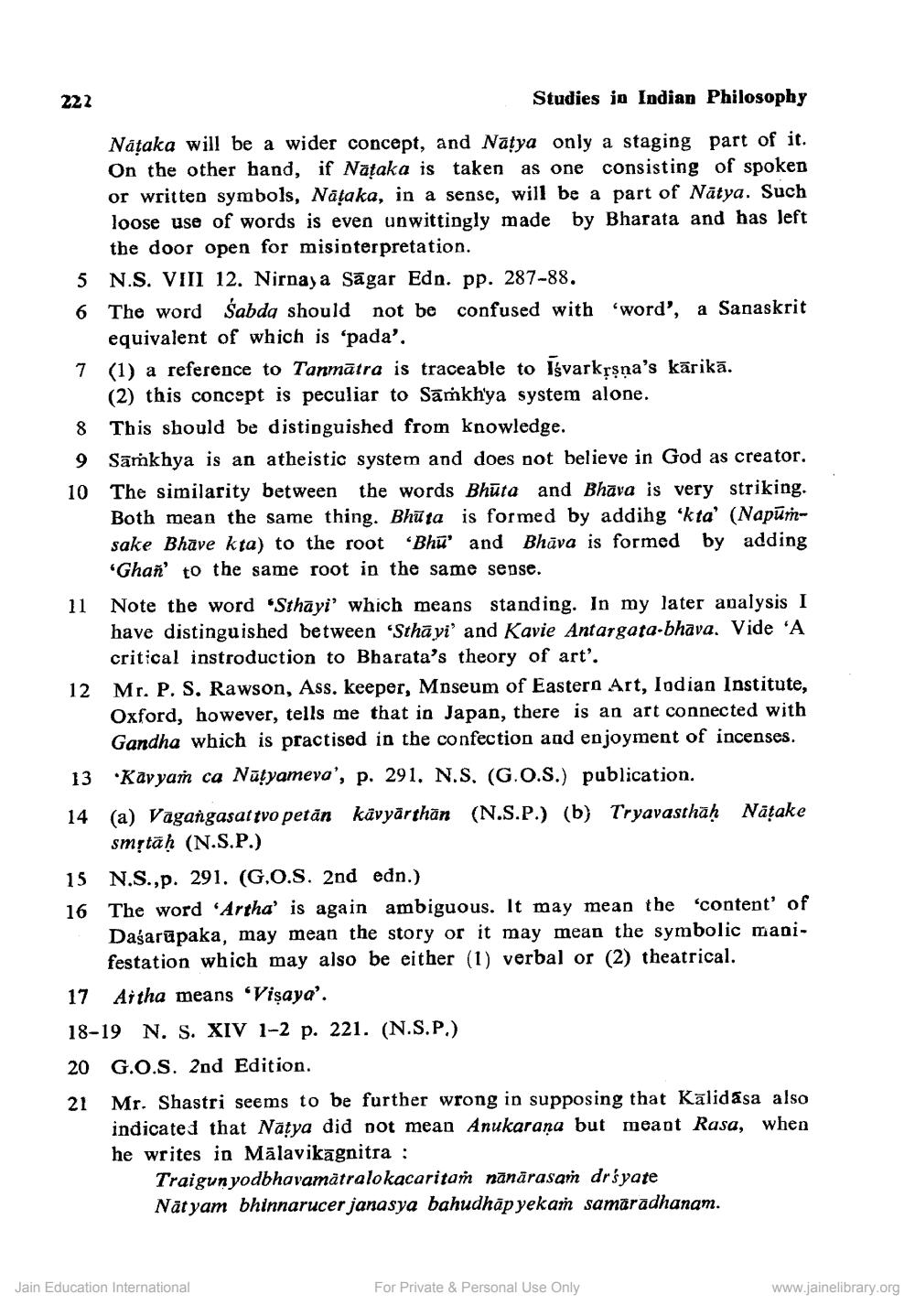________________
222
Studies in Indian Philosophy
Nataka will be a wider concept, and Natya only a staging part of it. On the other hand, if Națaka is taken as one consisting of spoken or written symbols, Nataka, in a sense, will be a part of Nātya. Such loose use of words is even unwittingly made by Bharata and has left
the door open for misinterpretation. 5 N.S. VIII 12. Nirnaya Sāgar Edn. pp. 287-88. 6 The word Sabdg should not be confused with word', a Sanaskrit
equivalent of which is 'pada'. 7 (1) a reference to Tanmātra is traceable to išvarkrsna's kārikā.
(2) this concept is peculiar to Sāṁkhya system alone. 8 This should be distinguished from knowledge. 9 Sāṁkhya is an atheistic system and does not believe in God as creator. 10 The similarity between the words Bhūta and Bhava is very striking.
Both mean the same thing. Bhūta is formed by adding ‘kta' (Napūrsake Bhave kta) to the root 'Bhū and Bhāva is formed by adding
'Ghan' to the same root in the same sense. 11 Note the word 'Sthāyi' which means standing. In my later analysis I
have distinguished between “Sthāyi' and Kavie Antargata-bhava. Vide 'A
critical instroduction to Bharata's theory of art. 12 Mr. P. S. Rawson, Ass, keeper, Moseum of Eastern Art, Indian Institute,
Oxford, however, tells me that in Japan, there is an art connected with
Gandha which is practised in the confection and enjoyment of incenses. 13 Kay yam ca Natyameva', p. 291. N.S. (G.O.S.) publication. 14 (a) Vagangasat tvo petán kävyārthân (N.S.P.) (b) Tryavasthāḥ Nāțake
smộtāḥ (N.S.P.) 15 N.S.,p. 291. (G.O.S. 2nd edn.) 16 The word 'Artha' is again ambiguous. It may mean the 'content of
Dasarūpaka, may mean the story or it may mean the symbolic mani.
festation which may also be either (1) verbal or (2) theatrical 17 Ai tha means 'Visaya'. 18-19 N. S. XIV 1-2 p. 221. (N.S.P.) 20 G.O.S. 2nd Edition. 21 Mr. Shastri seems to be further wrong in supposing that Kālidasa also
indicated that Natya did not mean Anukarana but meant Rasa, when he writes in Malavikāgnitra :
Traigun yodbhavamatralokacaritam nānārasan drśyate Nät yam bhinnarucer janasya bahudhāp yekaṁ samaradhanam.
Jain Education International
For Private & Personal Use Only
www.jainelibrary.org




